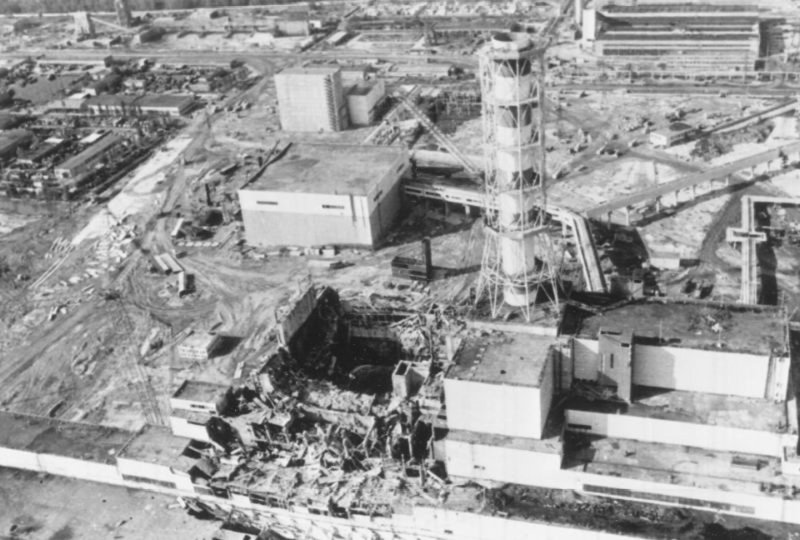1 of 4 | An aerial photograph of the damage caused to the Chernobyl Nuclear Power Plant, Ukraine, caused by the explosion on April 26, 1986. UPI/INS |
License Photo
KIEV, Ukraine, April 26 (UPI) -- The presidents of Russia and Ukraine met Tuesday at the Chernobyl nuclear power plant to mark the 25th anniversary of an accident that unleashed a deadly cloud of radiation over large parts of Europe.
Russian President Dmitry Medvedev and his Ukrainian counterpart Victor Yanukovych were joined by senior figures from the Orthodox Church for the commemoration ceremonies in Ukraine.
Medvedev sounded a bell at a church in Chernobyl, which is close to the border with Belarus, and both leaders laid the foundation stone for a monument to the workers who led cleanup efforts after the 1986 accident.
"Today we bow our heads in honor of the memory of those who performed a true deed at the most difficult moment," Medvedev was quoted as saying by Russian news agency RIA Novosti.
An explosion and fire at the Chernobyl plant's No. 4 reactor on April 26, 1986, released large quantities of radioactive material into the atmosphere. The nuclear cloud spread over large parts of Russia and Europe, with 200,000 people evacuated and an estimated 9 million people affected.
While experts are divided on how many people died as a result of the accident, Chernobyl is considered the largest nuclear disaster in history.
Soviet authorities built a concrete sarcophagus to cover the damaged reactor, but the structure will have to be replaced, observers say.
Kiev plans to build a new hull over the reactor and at an international donor's conference in Kiev earlier this month raised around $800 million to help finance construction.
The new sarcophagus is expected to cost more than $1 billion, EUobserver reported.
The Chernobyl anniversary comes as governments across the world are re-evaluating their nuclear strategies following an accident at the Fukushima Daiichi plant in Japan.
President Nicolas Sarkozy of France, the world's second-largest nuclear energy producer after the United States, said reactors that failed the test would be shut down.
Germany, home to 17 reactors that produce around one-fifth of the country's electricity demand, ordered comprehensive stress tests for all reactors and decided to close the seven oldest, most of them built during the 1970s, for at least three months.
Switzerland suspended the approvals process for three new nuclear power stations amid the Japanese crisis and said it was checking its existing plants for safety.
Meanwhile, European nuclear regulators are drafting stress tests for the continent's 163 reactors. Plants that don't perform well in those simulations might be required to be retrofitted with new technology. This could increase the price tag of producing nuclear power, observers say.
Russia said last month it had agreed with the United States on joint stress tests for their reactors.















